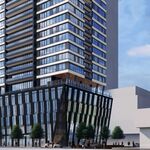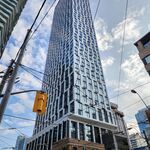ssiguy2
Senior Member
Except for new pieces of infrastructure, such as the 407, I have never agreed with tolls and I never will because they basically pick winners & losers and it's always the lower income people who end up paying the most. This is especially true in expensive cities like Toronto where people live where they are forced to due to high housing costs even though it maybe further from their work. Some one in Rosedale going downtown shouldn't be able to do so free and gratis while someone travelling the same distance using the DVP or 401 has to pay thru the teeth all because they are not wealthy enough to live downtown.
A better system is a flat yearly tax on all vehicles which allows a certain amount of free travel ie 10,000 km/year. Above that people would have to pay a certain amount per km {ie $100/ per 10,000 km} so that nobody can avoid the tax regardless of where they live or what roads they take. Added onto this equation should be a formula of the amount you drive in conjunction with your vehicles registered emissions. This way a polluting 2015 Dodge Ram owner is paying more than a 2021 Chevy Spark one because they are higher emitting vehicles. Such calculations should NOT be just based upon whether you have an electric car or not because, as it stands now, most electric cars are still a luxury of the well off.
Such a formula would not only ensure that everyone pays their fair share and reduce emissions but would be more socially equitable by not punishing people who can't afford to live near where they work and can't afford an electric vehicle.
A better system is a flat yearly tax on all vehicles which allows a certain amount of free travel ie 10,000 km/year. Above that people would have to pay a certain amount per km {ie $100/ per 10,000 km} so that nobody can avoid the tax regardless of where they live or what roads they take. Added onto this equation should be a formula of the amount you drive in conjunction with your vehicles registered emissions. This way a polluting 2015 Dodge Ram owner is paying more than a 2021 Chevy Spark one because they are higher emitting vehicles. Such calculations should NOT be just based upon whether you have an electric car or not because, as it stands now, most electric cars are still a luxury of the well off.
Such a formula would not only ensure that everyone pays their fair share and reduce emissions but would be more socially equitable by not punishing people who can't afford to live near where they work and can't afford an electric vehicle.




